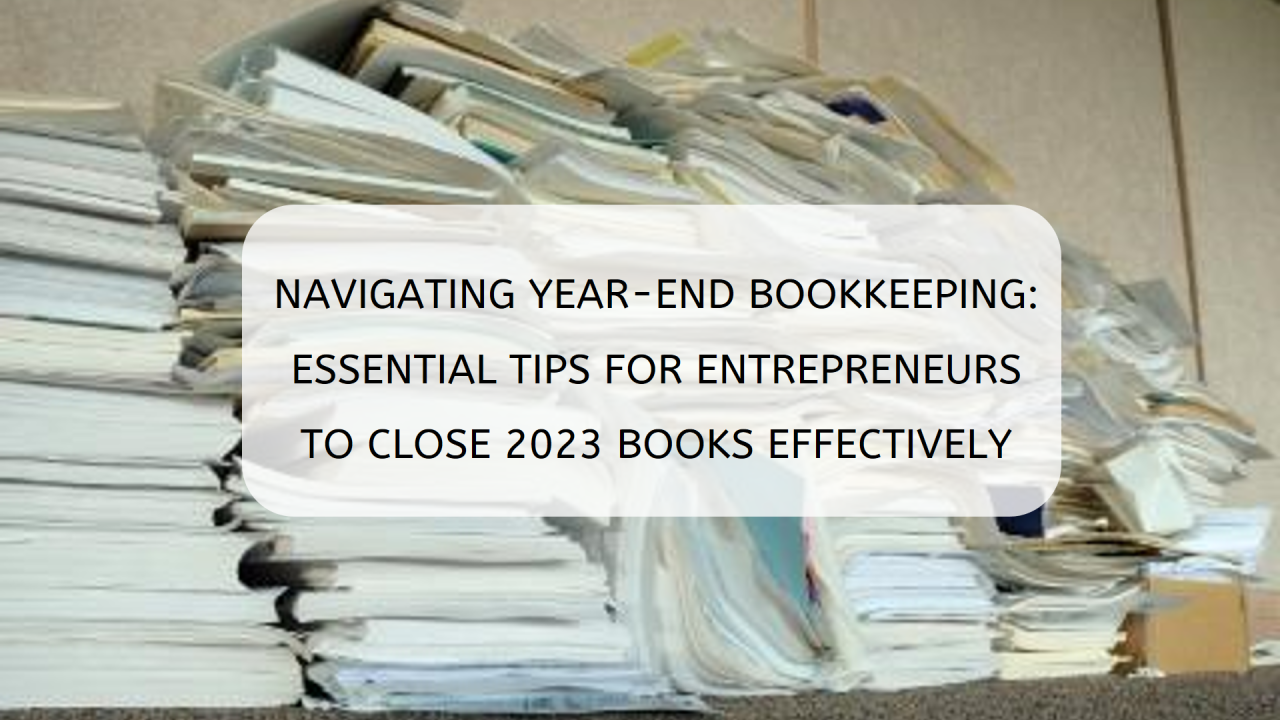As we welcome 2024, it’s crucial for entrepreneurs to efficiently close their books for the previous year. I offer practical tips on year-end bookkeeping, from organizing financial documents to planning for taxes. Whether you’re a seasoned business owner or just starting out, these insights will help you navigate the financial close with confidence.

As entrepreneurs, the end of the year signifies a critical time for financial management – closing your books. While some may opt for professional bookkeeping services, understanding the basics of this process can be immensely beneficial. Here are practical tips to help you efficiently close your books for 2023.
1. Organize Financial Documents
Start by gathering all your financial documents, including invoices, receipts, bank statements, and credit card statements. Organizing these documents will give you a clear picture of your financial transactions throughout the year.
2. Reconcile Bank Statements
Ensure that your bank statements match the transactions recorded in your books. This step is crucial to catch any discrepancies and ensure that every entry reflects actual financial activity.
3. Review Accounts Receivable
Check your accounts receivable to identify any outstanding invoices. Follow up on these to improve cash flow and ensure accurate income reporting.
4. Review your accounts payable
Ensure that all bills and obligations are accounted for and paid. This helps in accurately determining your business’s liabilities.
5. Inventory Management
If your business holds inventory, conduct a year-end inventory count. This will help in accurately valuing your inventory and determining cost of goods sold.
6. Assess Depreciation
For fixed assets like equipment or vehicles, calculate depreciation for the year. This affects both the value of your assets and your tax liabilities.
7. Prepare Financial Statements
Compile your financial data into key statements – the balance sheet, income statement, and cash flow statement. These provide a comprehensive view of your business’s financial health.
8. Plan for Taxes
Use your financial statements to estimate tax liabilities. Consider setting aside funds for tax payments and explore potential tax deductions or credits.
9. Set New Financial Goals
With your books closed, analyze your financial performance and set goals for the new year. This might include budget adjustments, revenue targets, or cost-cutting measures.
10. Consider Professional Advice
While managing bookkeeping on your own is possible, don’t hesitate to seek professional advice for complex financial matters. This can provide peace of mind and ensure compliance with tax laws and accounting standards.
Conclusion: Closing your books is a fundamental aspect of business management. By following these tips, you can wrap up 2023 with a clear understanding of your business’s financial position, paving the way for a successful 2024. Remember, effective bookkeeping is not just about compliance; it’s about gaining insights that drive your business forward.




+ view comments . . .